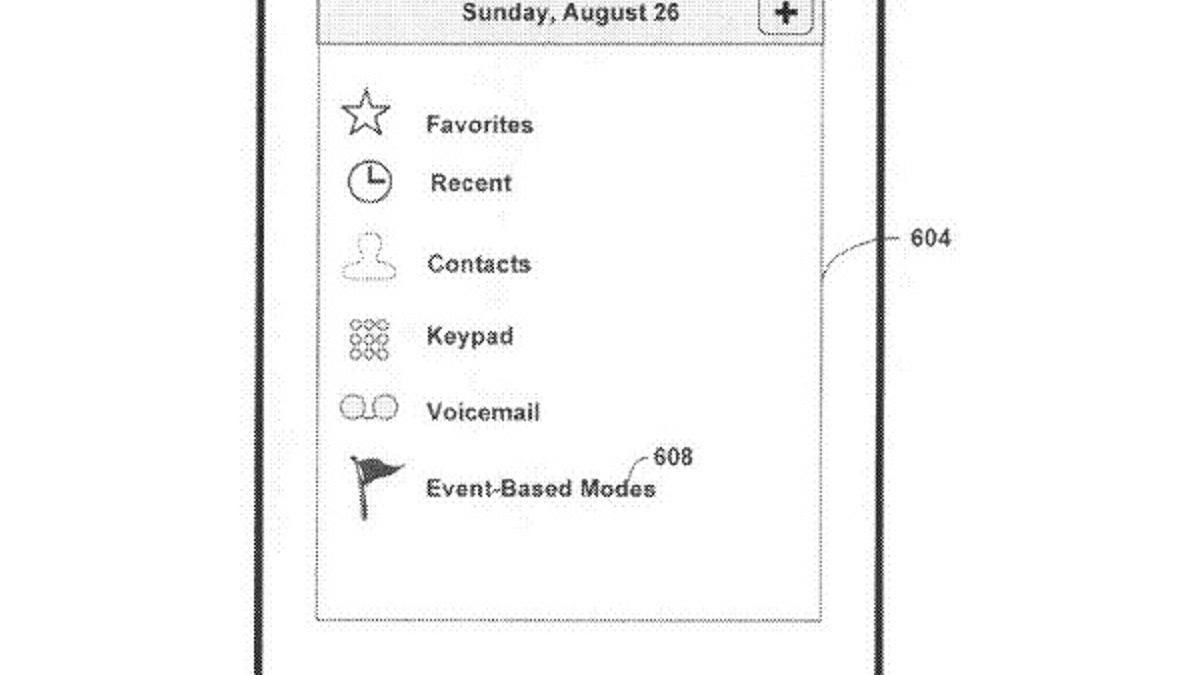
In the future, you may never need to silence your iPhone before heading into a business meeting or a movie theater again.
Seemingly following Motorola’s footsteps, Apple has patented technology that would allow your iPhone to make hardware and software adjustments based on your location, the weather and other factors.
The patent’s description sounds similar to the sensor-based features present in Motorola’s Moto X. The new Motorola smartphone can perform tasks such as lowering your ringer volume when you attend an event marked in your calendar, or dictating text messages while you’re in your car. Apple’s system would carry out similar tasks based on what the company calls “life events,” which means your iPhone’s “mode of operation” could be altered depending on your location, the environment, an event your calendar or a breaking news item.
MORE: Top 25 Apps for Your Jailbroken iPhone
“In some instances, however, certain functions or settings of an electronic device may not be appropriate or authorized depending on the situation or environment in which the user may find him or herself,” the patent reads. Apple cites situations such as attending a movie, driving a car, or restricting camera functions during a concert as examples. The last scenario echoes an Apple patent from 2011 that described a system to block the use of iPhone cameras when concert attendees hold up their device and trigger infrared sensors from within a concert venue.
The new patent, however, files these “life events” into two categories: mandatory and permissible. Your iPhone would be able to perform certain tasks independently in both mandatory and permissible mode, such as changing the ringer volume, managing software and powering up the device.
Mandatory mode, however, would place limits based on certain preset settings, such as a parent restricting their child from using their phone past a certain time. This restriction can only be broken if predetermined criteria is met, such as entering a password or waiting for a timer to expire. Any changes or restrictions triggered during permissible mode, comparatively, are optional after the phone has detected a certain “life event.” For instance, the user may be presented with a list of options when entering a new location.
There’s no telling whether or not this technology will turn up in your next iPhone, but it’s just another indication of the direction the industry is headed. This isn’t the first time we’ve heard of Apple delving into sensor-based technology. At the end of August, a patent described a situation- aware iPhone that performed functions similar to those described in this week's filing, but didn't utilize "life events" like the technology in the newer patent.








































